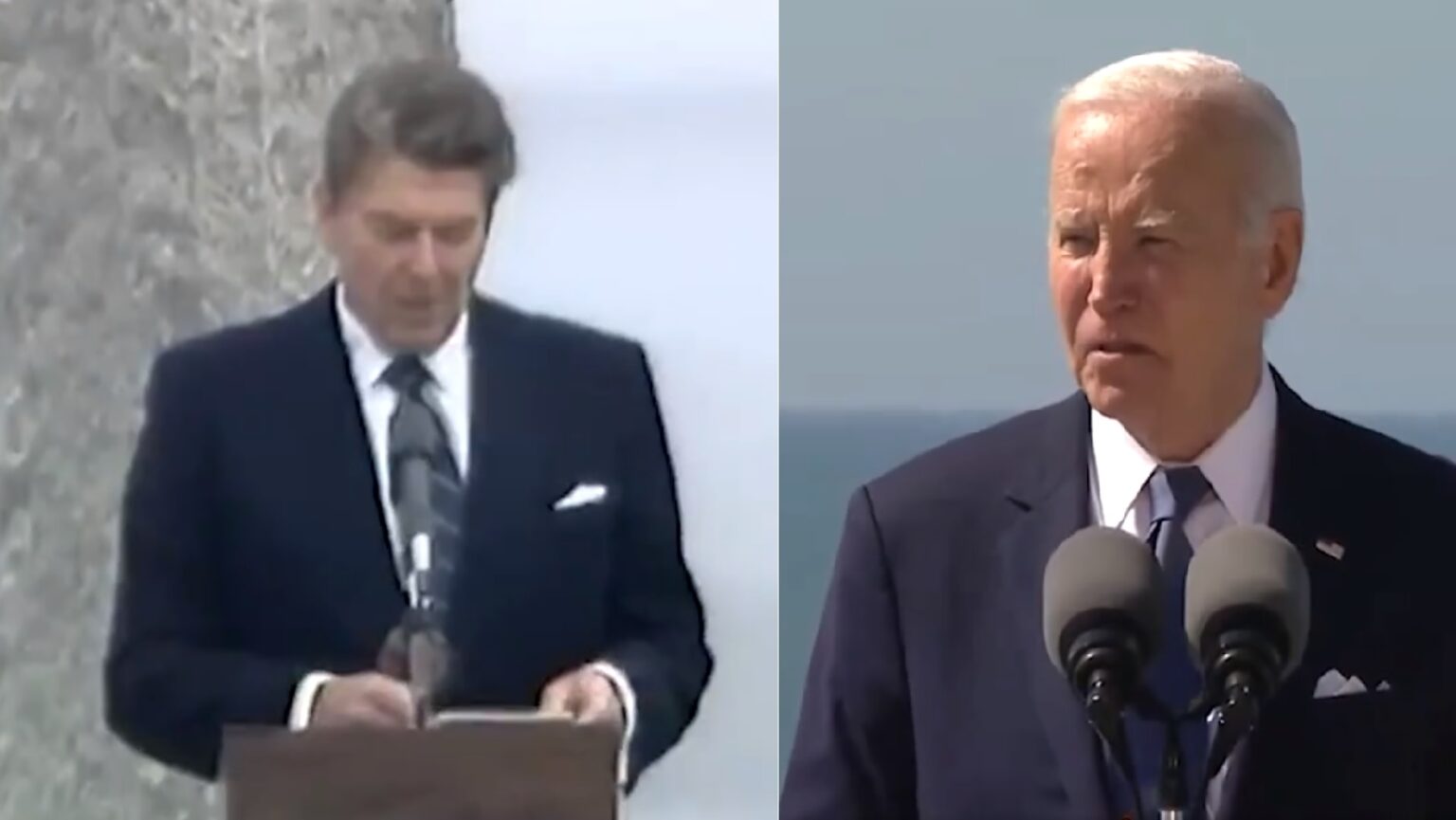In a surprising move, the Democratic Party has pivoted to Vice President Kamala Harris as their central figure for the 2024 presidential campaign.
This abrupt decision, perceived by many as a desperate attempt to recalibrate their strategy, is already facing significant backlash and criticism.
Trending: Steve Bannon’s Supreme Court Appeal Gains Republican Support

The move comes amidst growing concerns within the party about President Joe Biden’s viability as a candidate given his age and declining approval ratings.
Trending:“Who’s Behind These Talking Points?” Peter Doocy Asks DEI Hire KJP
The decision to elevate Harris has been met with mixed reactions.
According to a report by Breitbart, this strategic shift is creating chaos within the party.
The article describes the switch as “abrupt” and “desperate,” suggesting that it reflects a lack of confidence in Biden’s ability to lead the ticket to victory in the upcoming election .
The Gateway Pundit echoed these sentiments, emphasizing that the decision appears hasty and ill-considered, further destabilizing an already tumultuous campaign .
Harris, who has faced her own share of controversies and criticism during her tenure as Vice President, now bears the burden of rejuvenating a campaign that is struggling to gain momentum. Critics argue that her record and public perception make her an unwise choice for the top spot.
A USA Today column highlights that Harris’s approval ratings have been consistently low, with many voters expressing doubts about her leadership abilities and policy positions .
The conservative perspective underscores the perception that the Democratic Party is floundering. Many on the right view this switch as an indication of the party’s desperation.
This sudden change smacks of panic rather than strategic planning, and could alienate both moderate Democrats and independent voters who are crucial for a general election victory . This sentiment is shared by a significant portion of the conservative electorate, who see the move as a sign of weakness rather than strength.
#Recent National Trump vs Harris Polls:
.@J_L_Partners/@DailyMail:
Trump 49% (+11)
Harris 38%
.
@Socal_Research:
Trump 52% (+8)
Harris 44%
.@EmersonPolling:
Trump 49% (+6)
Harris 43%
.@Harris_X_/@Forbes:
Trump 52% (+4)
Harris 48%
.@NoblePredictive:
Trump 48% (+4)
Harris 44%
.…— Political Polls (@Politics_Polls) July 22, 2024
From a factual standpoint, the decision to shift focus to Harris has indeed resulted in internal party strife. Reports indicate that several prominent Democrats are unhappy with the lack of consultation and the speed of the decision.
The move has also triggered a wave of negative media coverage, further complicating the party’s efforts to present a united front. Some party insiders fear that this abrupt change could lead to a fractured base, making it even more challenging to mount a successful campaign against a formidable Republican opponent .
Moreover, the Republican Party has seized on this perceived disarray. GOP strategists are reportedly capitalizing on the Democrats’ apparent instability, using it to bolster their own narrative of a party in crisis.
The strategic implications of this switch are profound. If Harris fails to galvanize the electorate and improve her standing in the polls, the Democrats could face a significant uphill battle in the 2024 election.
Kamala Harris’s campaign has attempted to mitigate the fallout by focusing on key policy areas where she has been active, such as healthcare and criminal justice reform. However, these efforts have thus far been insufficient in reversing the negative public perception.
Harris’s previous campaign for the presidency in 2020 was marked by several missteps and a lack of clear messaging, issues that continue to haunt her political career .
The broader implications of this switch are also noteworthy. A shift to Harris at this juncture raises questions about the Democratic Party’s long-term strategy and its ability to adapt to rapidly changing political dynamics. It suggests a reactive rather than proactive approach, one that may not bode well for future electoral prospects.
In conclusion, the Democratic Party’s decision to pivot to Kamala Harris as their key figure for the 2024 election appears to be a move fraught with risk. While intended to inject new energy into a flagging campaign, it may already be backfiring, causing internal discord and providing fodder for Republican attacks.
This as a critical misstep that could have significant repercussions for the Democratic Party’s hopes of retaining the White House.
